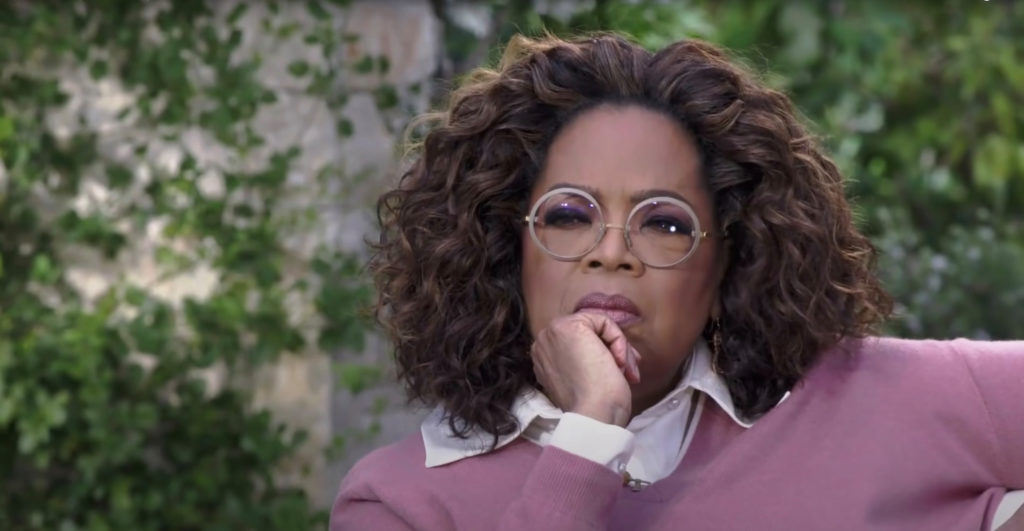Earlier this month, in a sit down with Oprah, Megan Markle and Prince Harry spoke of their experience with the royals. Particular incidents were highlighted and subsequently questions arose as to whether now was the time that the Royal Family had lost its purpose.

Amongst a number of other conversations, it was revealed that a member of the Royal Family had asked about the possible skin colour of Harry and Megan’s child (that we now know to be baby Archie). The microagressions faced by Megan Markle at the hands of the The Firm, and the mainstream media have brought forward conversations surrounding the Monarchy and its relevance in society today.
The current monarch and head of state is Queen Elizabeth II, who ascended the throne in 1952. The monarch and their immediate family undertake various official, ceremonial, diplomatic and representational duties. The Queen is also the head of the British Armed Forces.
Is it time for all this to change?

The British Monarchy, by virtue of being one of the oldest and most financially influential institutions in the world, has the power to positively impact cultural and racial disunity in the UK.
Britain has a multi-cultural population which has over the years only become increasingly diverse. Social cohesion in the country is at an all-time low following political division and racial conflict. Though the Monarchy has no major role in running the country, it acts as an emblem of British national identity.
When compared to South Asian, Caribbean, and African cultures, (where the majority of ethnic Britons derive their roots), British culture and national identity are waning and weak. It becomes increasingly difficult for British Asians/Caribbeans/Africans to resonate with a national identity that is so deeply connected to Britain’s colonial past.
However, it makes more sense to reform the monarchy to reflect Britain’s current state of ethnic diversity than to abolish it altogether and deplete the feeble semblance of English culture that we have left.
Diana’s legacy is a case in point of how the monarchy has the power to really unite people of all races within the UK. Meghan Markle’s early involvement with the Robert Clark Upper School in Dagenham also showed the beginnings of a more relatable royal family. By getting involved in projects, charities and events that give ethnic Britons more of a voice and platform, the monarchy can consolidate the melting pot of identities that make up Britain.
Seeing one of the most traditionally colonialist institutions in the world uplift those who struggle to embrace their British identity symbolises how racist attitudes in Britain are a relic of a time gone by. There is still hope for the British Monarchy if they carefully address Harry and Megan’s allegations and make a genuine commitment towards becoming more racially inclusive.

Abolition may be far away but things must change
Since Harry and Meghan’s explosive interview with Oprah, the republican movement in the UK has enjoyed a substantial bump in support and interest. More pundits are asking questions about the Royal institution and its place in a modern democracy.
It’s also important to note that the Monarchy is still supported by a plethora of people across all age groups in Great Britain. Perhaps unsurprisingly, it is among over 65 year old’s where the level of support is highest at 84 percent. Younger age groups are progressively more likely to oppose the monarchy, with 34 percent of 18-24 year old’s opting instead for an elected head of state. This is according to research site Staistia.
Abolition may be many decades away however what some have campaigned for, including the leader of the opposition, Kier Starmer, is that the monarch should have a greatly reduced role. This means over time politicians should gradually reduce the privileges and influence of the monarchy; reduce, and exert greater control over government expenditure on the monarchy.
The argument goes that, the monarchy in its current form is a stain on a modern liberal democracy which is meant to be built on fairness and in which all citizens are regarded as being of equal worth. This is at odds with a monarchy which symbolizes an anarchical social order based on hereditary status, wealth and privilege. Keir Starmer has said he would like to downsize the monarchy and this position is shared by many politicians today, although it’s unpopular to say publically. On the Labour policy forum page, one writer postulated the process could look something like this…
- The Sovereign Grant should be based on an estimate of what Parliament considers to be the essential needs of the monarchy, rather than it being linked to the revenue surplus of the Crown Estate;
- All other grants and forms of support for monarchy should be ended;
- Revenues from the Duchies of Lancaster and Cornwall should be paid to the state rather than to the monarch and her heir;
- The need for the retention of the Duchies and the Crown Estate as separate entities should be examined.
We may be far away from abolition, however, it seems an increasing number of people want change.


